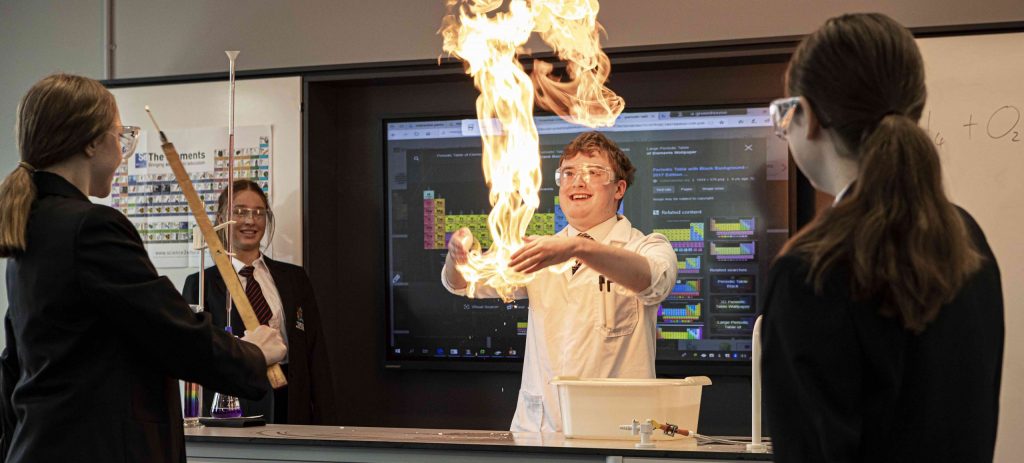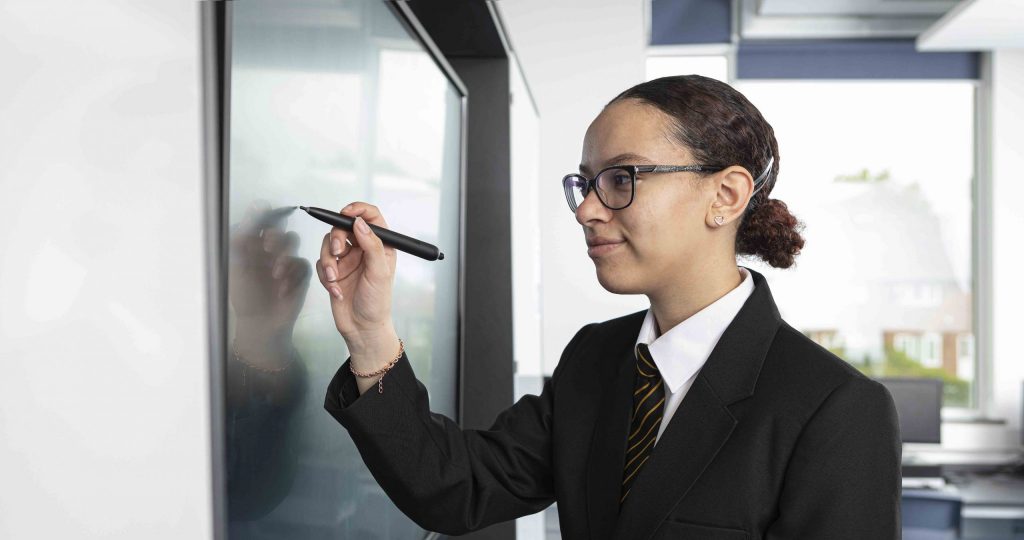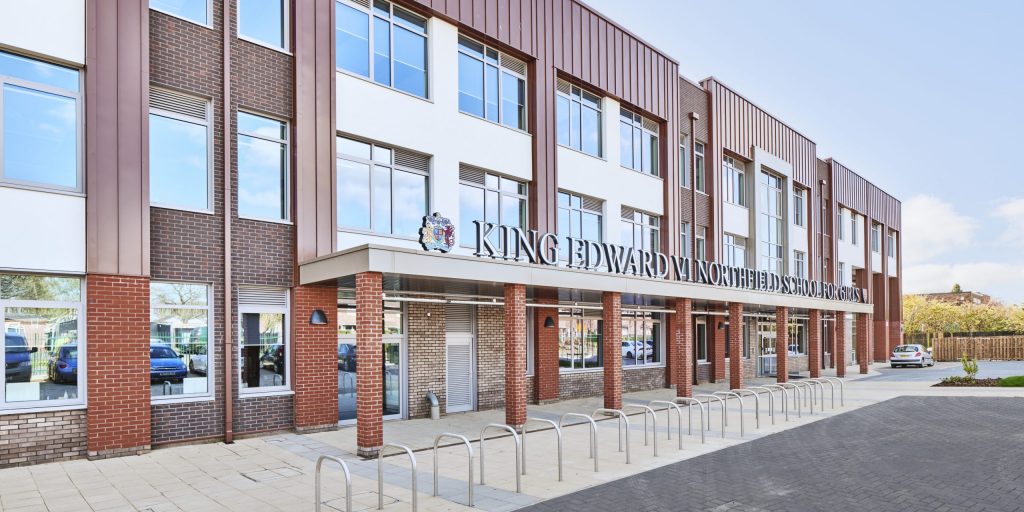Music is incredibly valuable and an important part of our curriculum at KS3 and KS4 and tries to inspire a love of music and for pupils to develop their talent as musicians.
King Edward VI Northfield School for Girls is situated in an area of high deprivation and the proportion of students eligible for Pupil Premium is above average. The music curriculum is designed to develop the cultural capital of our pupils. This is done through promoting and exposing the girls to assorted styles and genres of music including ones they may not have less or little experience of such as classical music, 20th Century music and music for film. This wide range of styles affords them the opportunity to perform and practice on instruments that they may not be able to afford at home or that they may never have come in to contact with previously. Being a girls’ school, we are aware that we should have female role models for our pupils to aspire to. We work closely with Birmingham Music Services for Education who supply peripatetic teachers of strings, woodwind, piano, guitar and voice. We offer all of our Pupil Premium pupils the option to have instrumental lessons free of charge and due to this link with the Music Service so they are able to borrow an instrument to take home to practice which is one of the biggest barriers to our pupils engaging with and taking up an instrument.
Music at KS3
The KS3 Music curriculum at King Edward VI Northfield School for Girls aims to give all students the opportunity to think, perform and create music in a meaningful way through a broad and balanced curriculum that explores our shared music culture. The curriculum aims to not only build on experiential tacit knowledge but gives students the procedural and the declarative knowledge to both pursue music further on in life and to give students access to the incredible cultural capital that music gives to all people. There are many core skills that our music curriculum aims to strengthen including problem solving, risk taking, perseverance, collaboration, negotiation, confidence, listening skills, time management, interpersonal skills, evaluation skills and knowledge of cultural History. The extra-curricular music programme supports the work done in the classroom and allows pupils of varying abilities to engage with and further their enjoyment and experience of different musical genres. We aim up to 3 concerts a year to enable our pupils to showcase their talents. We have a school band and a school choir which runs and consists of pupils playing instruments and a group of singers; we have a small instrumental group and will be developing a music theory afterschool session to assist girls who are working through instrumental grades.
By the end of key stage 3 we are aiming for all pupils to be able to;
· Perform on a musical instrument with confidence
· Sing with confidence as part of a group
· Recognise and perform rhythms and be able to keep a sense of pulse
· Demonstrate an understanding of the musical elements through performing, composing and listening & appraising
· Read and interpret a variety of basic notations including treble clef notation, rhythmic notation, graphic scores and other notations from music around the world
· Compose with a sense of creativity – this includes composing in a variety of different genres and using musical devices and compositional techniques
· Listen to a wide variety of genres of music with increasing discrimination and be able to discuss music using musical language and terminology
Music at KS4
At KS4 all pupils are given the opportunity to study GCSE Music (OCR) if they want to.
This has 4 Areas of Study (AoS):
- Integrated Portfolio (two composing elements and two performance elements
- Popular Music
- The Concerto Through Time
- World Music
- Film and Descriptive Music
The controlled assessment element of the course is worth 60%. This includes preparing two performances (one solo and one group performance) and two compositions. Pupils learn how to perform confidently on their instrument and are taught compositional skills and techniques that they then use to create their own unique pieces of music.
The controlled assessment element of the course is worth 60%. This includes preparing two performances (one solo and one group performance) and two compositions. Pupils learn how to perform confidently on their instrument and are taught compositional skills and techniques that they then use to create their own unique pieces of music.
The listening element of the course is worth 40% and is assessed through a listening examination at the end of the course.
| Term | Yr 10 | Yr 11 |
|---|---|---|
| Autumn | Integrated Portfolio and AoS 1 Popular Music | Practical Portfolio and Film music |
| Spring | Integrated Portfolio, AoS 2 Concerto Through Time | Practical Portfolio; Integrated Portfolio and revision |
| Summer | Integrated Portfolio and World Music |
FE and Career Opportunities
There are a diverse number of opportunities in music post-16 and post-18. Courses that are available post-16 include A Level Music and A Level Music Technology, as well as courses in Performing Arts (A Levels and BTEC qualifications) and other music technologies such as DJing.
Career opportunities in music are wide ranging from becoming a music teacher (either in the classroom or teaching an instrument), to working in a music studio or becoming a performer!



